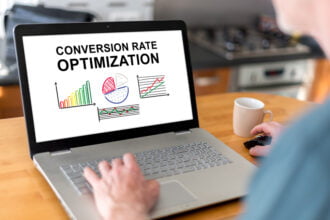There are plenty of challenges that companies face when it comes to recruitment. For one, the job market has become increasingly candidate-driven. This has resulted in a more difficult and costly process in filling open positions. What’s more, the competition for quality talent is fiercer than ever. If you don’t move fast enough, you’ll miss out on the top candidates. If you move too quickly, however, you might end up with bad hires.
The good thing is that you can overcome these recruitment hurdles by using big data and analytics. Indeed, no matter which industry you’re recruiting in, the impact of these two techniques is undeniable. (You can check out this website to know how data and performance metrics can improve real estate recruiting.)
Read on below for a quick exploration of how big data can affect recruitment in a positive way:
It Increases the Quality of New Hires
There are plenty of costs involved in recruitment. When you make a bad hire, those costs can skyrocket to up to 30% of the person’s annual earnings. In short, this is a hiring mistake that you want to avoid as much as possible. Thankfully, the information you derive from data and analytics can help you make the best evidence-based decisions.
With big data coming from online databases and publicly available information, recruiters and HR professionals can find the ideal candidate much easier. These volumes of data can be sorted based on key performance metrics, so you can identify the candidates who best match your requirements. Using data can also help you find more applicants per opening and also figure out which lead sources are the most effective.
It Creates a Bigger Candidate Pool
There are times when you instantly know when a candidate is “the one.” However, more often than not, you need to interview more than a couple of people before you can make a choice. The problem arises when you can’t find people to interview in the first place.
Fortunately, this is another issue that big data can address. With the help of analytics instruments, you can reach more candidates and create a bigger selection pool. In addition, a bigger talent pool can help you better analyze and optimize the hiring process, address skills gaps, and understand future hiring needs. Of course, if you ever have another job opening in the future, having a line-up of people ready to interview can result in quicker hiring times.
It Helps Improve Employee Development and Retention Programs
Recruitment doesn’t stop after a candidate gets hired. It continues well into employment, including training and retention. If these programs are unsuccessful, you’ll end up wasting the money you invested in finding the best people.
Big data can help address issues related to employee training and retention. For example, HR departments can measure the effectiveness of a development program. They can also find ways to simplify training methods without compromising their quality. Data is also important in crafting retention strategies that not only increase job satisfaction but also cultivate loyalty and a deeper appreciation of the company’s mission and vision.
It Can Prevent Over- and Under-Hiring
Both over-hiring and under-hiring result in unfavorable situations for a business. The former creates additional costs, while the latter can drive down productivity. To strike the balance, recruiters and HR professionals need to develop data-driven hiring plans. These plans should always be updated based on the company’s needs, with forecasts based on the analysis of various recruitment factors like attrition, lateral movement, promotions, and quality of hire. Big data helps immensely by removing bias.
It Helps Cut Down Recruitment Costs
Data and analytics can also be used to streamline recruitment spending because you’ll have a complete view of all performance versus budget. This helps you determine which lead sources produce the best quality hires, which job ad campaigns result in more applications, and which platforms attract certain types of candidates.
Using all of this information, top-level managers can make data-backed decisions on where to invest money, be it on advertising or mentorships. Ultimately, this results in cost savings.
These five are just a few among the many other aspects of recruitment that can be transformed by data. With the right facts and figures, you can also improve the candidate experience, speed of hire, and recruiting capacity. You can even enhance employer image and branding—and these are just the tip of the proverbial iceberg!
The key here is to know where to find your data, how to classify it, and how to derive insights from the information you’ve analyzed. Remember that data alone won’t do anything. What’s more, remember that more is not always better. There are a lot of vanity metrics that offer little value. Thus, recruiters need to invest in learning data science to make the most of big data.
That said, it’s evident that data will continue to be a big part of the recruitment industry in the future. If you haven’t thought about data-driven recruiting yet, now is the time to do so. There’s a lot of potential to be tapped, and you’ll be missing out on a lot of opportunities if you don’t learn to appreciate the numbers.










